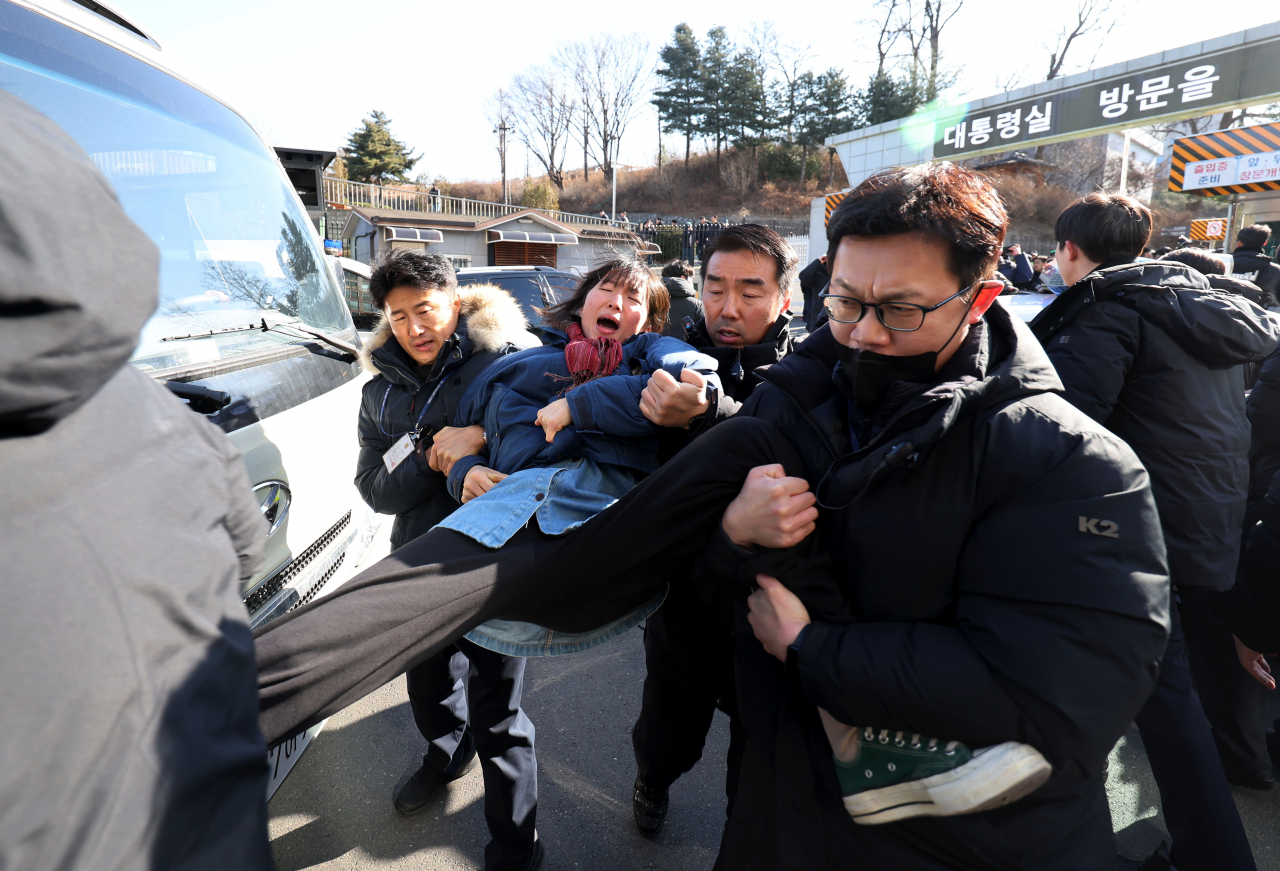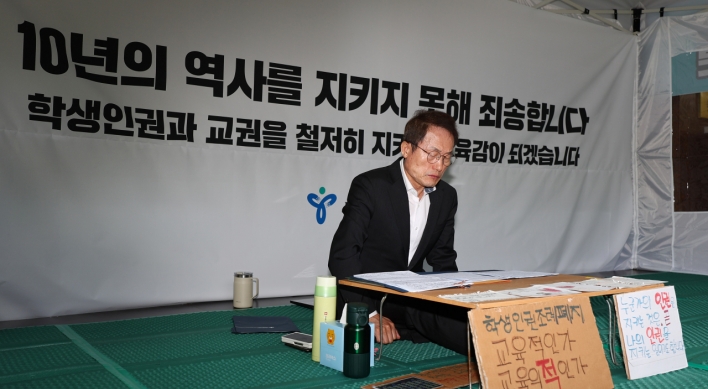Police seek to arrest college students for forcing entry into presidential office grounds
By Yoon Min-sikPublished : Jan. 8, 2024 - 17:50

South Korean police said Monday it has requested an arrest warrant for 16 college students for attempting to enter the presidential office grounds while demanding a special investigation into allegations against first lady Kim Keon Hee.
The National Office of Investigation chief Woo Jong-soo told reporters that officials are conducting investigation on 20 college students on charges of breaking and entering and violating law on demonstration, seeking arrest warrants for 16 of them. He said warrants were sought for those who had been charged with similar offenses in the past, and whose actions constituted serious crimes.
The suspects are members of the left-leaning Korean University Progressive Union, a group of students who had requested a meeting with President Yoon Seok Yeol on Saturday and held a protest in front of the presidential office in Yongsan-gu, Seoul, demanding a special investigation into the first lady's alleged stock manipulation. They attempted to enter the premises unauthorized, and were apprehended by police.
An investigation found that the group had not reported their protest to the authorities.
Yoon on Friday vetoed the bill -- proposed by the main opposition Democratic Party of Korea and passed in the National Assembly -- that would have authorized a special investigation into Kim’s stock manipulation allegations.
The ruling People Power Party and the main opposition Democratic Party have been at loggerheads over scheduling a revote for the bill. According to current law, the National Assembly can override a presidential veto in a revote with a two-thirds majority.





![[KH Explains] No more 'Michael' at Kakao Games](http://res.heraldm.com/phpwas/restmb_idxmake.php?idx=644&simg=/content/image/2024/04/28/20240428050183_0.jpg&u=20240428180321)













![[Herald Interview] Mistakes turn into blessings in street performance, director says](http://res.heraldm.com/phpwas/restmb_idxmake.php?idx=652&simg=/content/image/2024/04/28/20240428050150_0.jpg&u=20240428174656)
